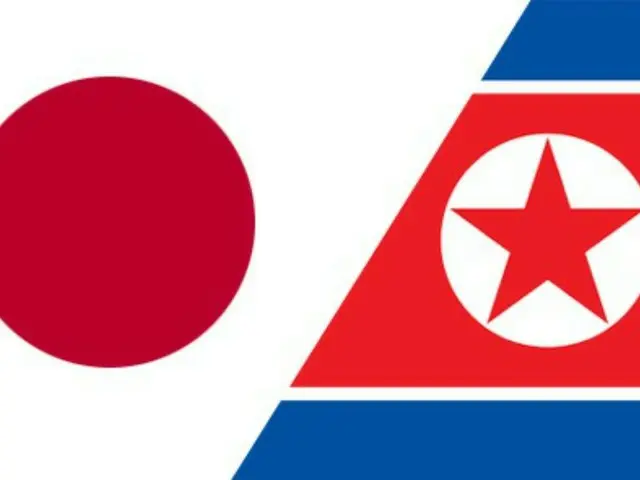Climb up on people. The families of the victims are calling for all Japanese abducted by North Korea to return to the country and for the issue to be resolved as soon as possible, but North Korea insists that the abduction issue has been ``resolved.'' The Japanese government does not see a way out.
I can't get it out. The first Japan-North Korea summit meeting was held on September 17, 2002, when then Prime Minister Junichiro Koizumi visited North Korea. General Secretary Kim Jong Il acknowledged the abduction and apologized. abduction victim
Five people were reported to be alive, while eight others, including Megumi Yokota, were reported to have died. At the meeting, the two leaders exchanged the ``Japan-North Korea Pyongyang Declaration.'' With this declaration, the two leaders agreed to settle the unfortunate past between Japan and North Korea, resolve outstanding issues, and work towards a fruitful relationship between Japan and North Korea.
They confirmed the common recognition that establishing political, economic and cultural relations would be in line with the fundamental interests of both sides and would also contribute to peace and stability in the region. The declaration includes the resumption of negotiations to normalize diplomatic relations and the
The agreement included an apology for its colonial rule, and a promise by North Korea to resolve the nuclear issue. The following month, five abductees returned to the country. In 2004, Mr. Koizumi revisited North Korea and five families of the abductees returned home.
country. However, since then, the stalemate over the abduction issue continued for a long time, and North Korea became obsessed with nuclear development. Subsequently, in 2014, the Japanese and North Korean governments decided to reinstate the victims of abductions by North Korea.
The Stockholm Agreement was announced, which included an investigation and the lifting of some of Japan's own sanctions. North Korea established a special investigation committee, but in 2016 it carried out nuclear tests and missile launches. Japan is
In response to the tightening of its own sanctions, North Korea declared the dissolution of the commission, and the Stockholm Agreement was abandoned, with hopes for progress in vain. At the U.S.-North Korea summit meetings in June 2018 and February 2019,
Although then-US President Trump raised the abduction issue, North Korea did not take any concrete action. In May of this year, Prime Minister Fumio Kishida spoke at a rally calling for the return of the abductees to the country, making the Japan-North Korea summit a reality.
``I would like to hold discussions at a high level under my direct control,'' he said. This is the first time that the expression "directly under the control" is used, and at the time, the Prime Minister led the government through all negotiation lines to resolve issues.
This was interpreted as a demonstration of the company's intention to work on this issue. Two days after Prime Minister Kishida expressed his desire to hold a Japan-North Korea summit meeting, North Korea announced, ``If Japan does not get bogged down in the past and seeks a way to improve relations,
If this is the case, there is no reason why the two countries cannot meet,'' said Park Sang-gil, vice minister of North Korea's Ministry of Foreign Affairs. An attitude that can be taken as positive for dialogue, such as ``Japan should demonstrate its intention to solve problems through action.''
was also shown. On the other hand, Vice Minister Park claimed that she was ``trying to raise the abduction issue that has already been resolved.'' ``It would be a miscalculation if we followed the previous administration's approach and tried to solve unrealizable desires.''
"It would be a waste of time," he said. The following June, North Korea's state-run Korean Central News Agency reported a statement by a researcher at the Japanese Institute. Regarding the abduction issue, ``Japan is putting an unrealizable problem at the forefront and
"We are still bringing this to the international stage." He added, ``This is tantamount to denying the position of Japanese officials, who have stated at every opportunity that they hope for a ``Japan-North Korea summit meeting without preconditions.''
'' he claimed. The Institute for Japanese Studies appears to be under the umbrella of North Korea's Ministry of Foreign Affairs, and when North Korea criticizes Japan, it often publishes statements under the names of researchers at the Institute for Japanese Studies.
The 17th of this month marks 21 years since the first Japan-North Korea summit meeting. The families of the abductees are aging, and they are calling for a resolution to the issue as soon as possible. 45 years on the 17th
Akira, the younger brother of Rumiko Masu, who was abducted by North Korea along with Shuichi Ichikawa on the coast of Kagoshima Prefecture, held a signature campaign in Tokyo.
At a press conference on the 13th of this month, Prime Minister Kishida said regarding the abduction issue, ``We have a vision of opening up a new era together.''
From this point on, I will continue to convey my determination to Kim Jung Eun. I would like to proceed with high-level discussions under my direct control." On the other hand, the Prime Minister said, ``In order to realize the summit meeting as soon as possible, various routes are being considered.''
However, regarding the current state of Japan-North Korea negotiations, he said, ``Discussing the details at this stage may have an impact on the negotiations. We must refrain.''
I met.
2023/09/19 13:44 KST
Copyrights(C)wowkorea.jp 5

